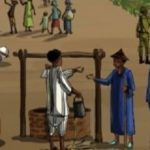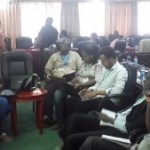By Daniel Mason-D'Croz and Shahnila Islam, IFPRI Climate change will likely have a negative effect on the agriculture sector in West Africa due to changing precipitation patterns and increasing temperatures. These changes can have negative impacts on food security in the region and, ultimately, the consequences of these changes will depend in part on society’s >> Read more
Heat stress could be a problem for livestock living outdoors under climate change
By Ricky Robertson (IFPRI) It began with an innocent enquiry: do we have relative humidity data, under climate change for possible future situations, that could be used to think about a direct effect on animal productivity? Currently, in our economic modeling, the cattle, hogs, chickens, etc., are only indirectly affected by changes in feed/fodder prices >> Read more
Taxing red meat may cut emissions and disease
By Daniel Mason D'Croz, Keith Wiebe, and Sherman Robinson Growth in agricultural productivity and expanding markets have made more food available to more people than ever before. The options available to the average consumer visiting a supermarket are richer and more varied than at any time in history. But this abundance comes at a cost >> Read more
Structural Approaches and Technology Adoption: A new paper in Global Food Security
By Shahnila Islam Trends in population and income growth along with climate change pose significant risks to achieving sustainable food security. As challenges to the agricultural sector grow, we need improved tools to understand the risks, and to evaluate alternative solutions to mitigate some of these risks. In order for these tools to be useful, >> Read more
CIMMYT gathers partners to discuss biotic stress and crop model integration
By Kindie Tesfaye (CIMMYT) and Evgeniya Anisimova (PIM) When crops are damaged by other living organisms such as bacteria, viruses, fungi, insects and other pests, weeds or even cultivated plants competing for space and nutrients, we talk of the biotic stress. Biotic stresses are a major constraint to agricultural productivity in low and middle income >> Read more
Building capacity and a forum for collaboration
International Maize and Wheat Improvement Center (CIMMYT) organized a five-day training workshop titled “Crop and Bioeconomic Modeling under Uncertain Climate” on 7-11 December 2015 in Addis Ababa, Ethiopia. The workshop brought together representatives of Association for Strengthening Agricultural Research in Eastern and Central Africa (ASARECA) and West and Central Africa Council for Agricultural Research and Development (CORAF), as well as researchers from agricultural research institutes and universities from Ethiopia, Kenya, Uganda, Niger, Senegal, Nigeria, and Democratic Republic of the Congo.




